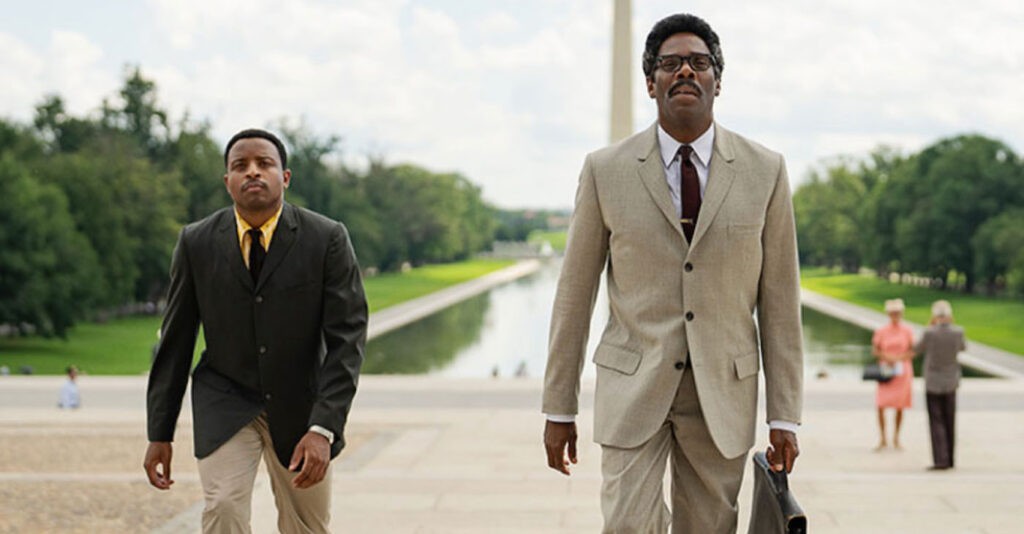By Dwight Brown
NNPA Film Critic
(**1/2) He was the man behind the man. Martin Luther King’s chief lieutenant. Why is he only getting attention now?
Bayard Rustin (Colman Domingo, Ma Rainey’s Black Bottom) was gay at a time in the ‘60s when he was shunned by MLK’s other associates. He regained his stature in the civil rights leader’s camp when he imagined, developed and completed a March on Washington. Rustin: “Do this Dr. King. Own your power.”
That assembly of like minds became the largest civil rights gathering ever. On August 28th, 1963, 250,000 people, who had a heightened sense of social consciousness, descended on D.C. and changed the course of history. Rustin: “A demonstration made up of angelic troublemakers.”

The script by Julian Breece (When They See Us) and Dustin Lance Black (Milk) gives and in-depth portrait of the man who endured continuous hazing, yet prevailed. Lovers, adversaries, arrests, achievements. It’s all on screen, manifested in a stunning performance by Domingo. Meticulous research has been turned into an energizing screenplay. All the characters are in place. Yet, too often their dialogue seems more suited for a modern novel than the way everyday folks talked back then.
The most stirring drama is featured in scenes played by veteran actors who embody strong-willed civil rights icons in the heat of verbal battles: Glynn Turman (A. Phillip Randolph), CCH Pounder (Dr. Anna Hedgeman), Maxwell Whittington-Cooper (John Lewis), Aml Ameen (MLK). Jeffrey Wright as the vindictive Adam Clayton Powell commands the screen and steers the proceedings to high-pitch levels. Chris Rock as the condescending NAACP leader Roy Wilkinson seems woefully miscast: “The hell with Bayard Rustin. His attention-grabbing antics make him an easy target. And let’s not mention the unmentionable.”
Director George C. Wolfe (Ma Rainey’s Black Bottom) gets many things right. The assemblage of historical figures is as magical as the one in One Night in Miami, when Sam Cooke, Jim Brown, Muhammad Ali and Malcom X gathered. He makes Rustin’s coalition building feat (black activists, college kids, union members) seem miraculous. And Wolfe builds the tension and preparation to an exhilarating peak, getting solid performances from the very talented cast. Yet nothing distinguishes Rustin from other bio/history films, minus the milestone crowd shots at the Washington Monument.
Some will wish the film had steered towards authenticity and wasn’t so polished. Tobias A. Schliessler’s cinematography glistens. Toni-Leslie James’ costumes look like they were just bought at SAKS.
It’s hard to believe you’ve gone back in time when everything looks so neat and tidy. That’s the rub. Fortunately, the sheer gravitas of this historical accounting outweighs any imperfections.
Domingo, the screenwriters and supporting cast finally give the enigmatic Bayard Rustin his props, in the most respectful way. He’s no longer the man behind the scenes. He’s the man.




